Traffic Signal Timing and Operations Programs
T3S Facility
202 Hugo Dr. Seneca, SC
Clemson
When: Oct 18, 2022

Registration not yet available
Context Sensitive Signal Timings
Traditional signal timings favor vehicular traffic throughput, reducing motorist delay and travel times. However, signal timing parameters should reflect the character of the area and provide service to all modes of traffic, including vulnerable road users. This training will discuss examples and methods used to apply signal timings along complete street corridors.
Shoestring Traffic Signal Timing
This training will help participants understand how to implement signal system timings when the budget is tight. Participants will learn the difference between signal timing theory and developing signal timing plans in an office environment vs. field signal retiming methodology. Woody will discuss how to retime signals using your eyes, stopwatch, and common sense. The discussion will include the realities of dealing with real-world field conditions and how to identify and correct issues in the field.
Signal Operations Tools
This training will discuss the various tools used in implementing and assessing the benefits of signal timings. The tools will include both tried-and-true and emerging technologies.
Learning Outcomes:
Participants will understand:
- Parameters to consider when retiming complete street corridors
- How to retime a corridor when budgets are tight using the ‘shoestring’ methodology
- The tools to use to develop and evaluate retiming plans
- The importance of documenting signal timing parameters
- Various signal settings that impact the effectiveness of signal timing plans
Speaker Bio
Woody, Mead & Hunt Traffic Signal Specialist, has 39 years of experience in the transportation industry, approximately 27 of which have been in the area of traffic signal timing and operations. Woody has developed timing plans for over 3500 traffic signals in multiple jurisdictions in the Mid-Atlantic Region. In addition, Woody has conducted training session for ITE, the University of MD CATS Center, and multiple local jurisdictions. He was also a peer reviewer on NCHRP 812 Signal Timing Manual and various other NCHRP reports.
Carol’s 34 years of engineering experience comprises both public and private sector work. She was a traffic engineer at SCDOT and City of Columbia, SC, for 29 years and is now a civil engineer at Mead & Hunt.
Using her unique skillset, Carol developed the SCDOT Traffic Signal Program, including signal design and retiming programs, as well as standards for signal communications, operations, maintenance, software, equipment, and construction. She also prepared design manuals and specifications for SCDOT’s signal program.
Keith’s experience includes the management of multiple large-scale, urban, multimodal traffic signal timing optimization projects, including hands-on analysis, implementation, and field operations. He is the inventor of the Folded Lefts Interchange, an unconventional interchange, and patented Connected Vehicle technology application EAD.Transit, designed to move transit through signalized intersections. His signal timing experience includes over 3,000 signals.
Joanna has 23 years of experience working as a traffic engineer in the private and public sector. Joanna spearheaded the effort to bring Automated Traffic Signal Performance Measures (ATSPMs) to the Wisconsin Department of Transportation (WisDOT) while working as the State Traffic Signal Systems Engineer. In addition, Joanna was responsible for developing standards and policy related to traffic signal design as well as traffic signal operations.
Schedule
Class check-in will begin at 8:00am, with instruction beginning promptly at 8:15am and adjourning around 12pm.
Course Fee
The registration fee for the workshop is $45.00 per person. The fee includes course materials and break refreshments.
This course has a maximum of 35 students, and will be capped at this number. Advanced registration is encouraged so that an accurate estimate of the number of workshop participants can be obtained. Workshops with low advanced registration will be subject to cancellation.
Who Should Attend
State and Municipal Engineers (All levels welcome) or anyone interested in learning more about traffic signal timing and operations. This Class is 4 PDH hours.
Payment Policy
UPDATED 2/15/23 – The Transportation Technology Transfer Service now accepts Electronic Check (ACH) payments in addition to credit card payments. While credit card payments are still the preferred payment method, you now have the Electronic Check (ACH) option. Your payment must be received within 5 business days of your registration. If your registration payment is not received by then, you will not be guaranteed registration for the conference.
Cancellation Policy
If you cancel your registration more than 72 hours before a class, your registration fee will be refunded, less a $35 processing fee. If you do not cancel before the 72 hour deadline your registration fee will not be refunded. You may send a substitute in your place, provided that you inform us of the substitute’s name no later than 24 hours before the training. No-shows will not have their registration fee refunded.
If you have questions regarding workshop registration please email Customer Service or call 864-656-4183.

